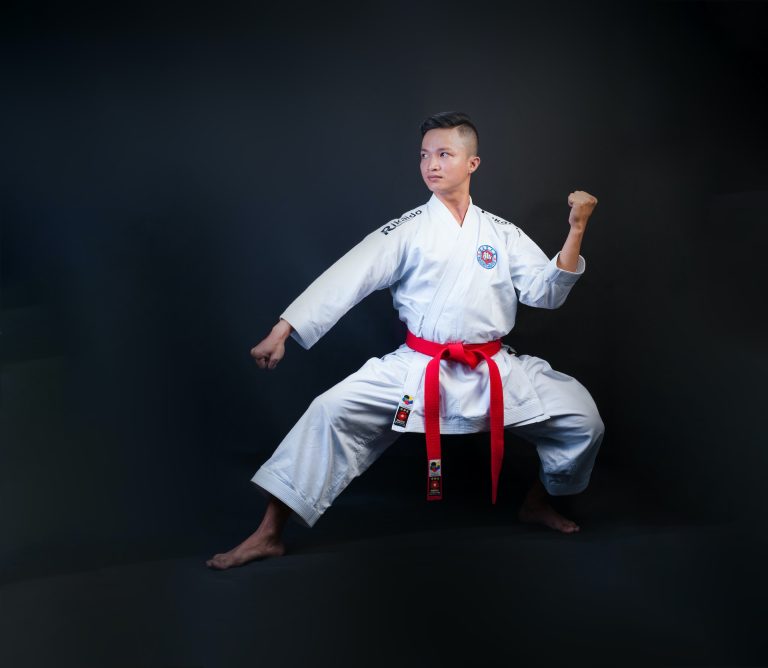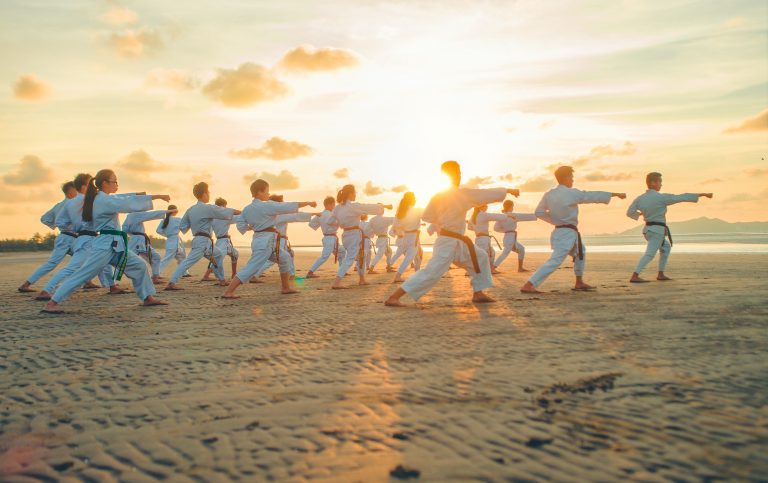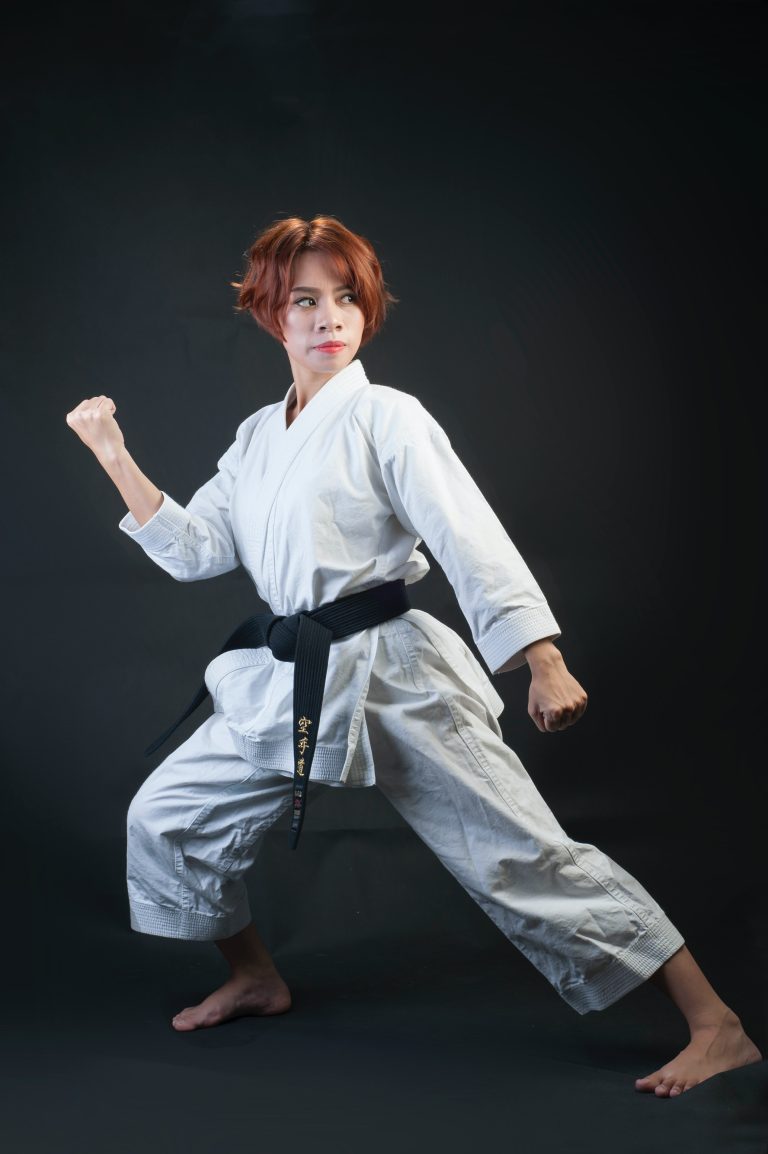How to Learn Karate Correctly: A Comprehensive Guide
Karate is a traditional martial art form that originated in Japan. Karate is not just about fighting, it is a way of life that instills discipline, focus, and respect. Learning Karate can help you physically and mentally, but it requires dedication, patience, and hard work. In this comprehensive guide, we will discuss how to learn Karate correctly.
Choose a reputable dojo
The first step to learning Karate is to choose a reputable dojo. A dojo is a martial arts school where you can learn Karate. Choose a dojo that has experienced and certified trainers. Do some research and read reviews to find a dojo that is a good fit for you. Make sure the dojo provides a safe and supportive environment for learning.
Start with the basics
Karate consists of various techniques that require a strong foundation. It is important to start with the basics and learn the fundamental moves correctly. This will help you to develop proper form and technique. You will start with learning basic movements like stances, punches, kicks, blocks, and strikes. With time, you will gradually progress to more advanced techniques.
Practice regularly
Practice is the key to mastering Karate. Dedicate time to practice regularly, preferably at least three times a week. Practice basic moves repeatedly until you perfect them. As you progress, practice new techniques and combinations. Practice at home and not just at the dojo. It is important to practice in front of a mirror so that you can check your form.
Work on your fitness levels
Karate requires a lot of physical effort, so it is essential to maintain good fitness levels. Focus on cardio exercises like running, cycling, and skipping to build endurance. Incorporate strength training exercises like push-ups and squats to build strength. Yoga is also useful to improve flexibility and balance.
Focus on breathing and meditation
Karate involves not just physical training but also mental focus. Breathing is an essential part of Karate, it helps you to increase your lung capacity and focus your mind. Meditation also helps in concentration and clarity of mind. Incorporate breathing exercises and meditation into your practice routine.
Be patient and persistent
Karate is a long-term commitment, it takes time and effort to master. It requires patience, persistence, and perseverance. Do not get discouraged by failures, instead, use them as an opportunity to learn and improve. Celebrate every small achievement and keep working towards your goals.
In conclusion, learning Karate requires a commitment to the process. Choose a reputable dojo, start with the basics, practice regularly, work on your fitness levels, focus on breathing and meditation, and be patient and persistent. With dedicated effort, anyone can learn Karate and gain its many benefits.
How to Learn Karate Correctly: A Comprehensive Guide
Karate is a popular martial art that originates from Japan. It?s a system of self-defense that combines punches, kicks, and other striking techniques to disable an opponent. Learning karate can be a challenging task, but it can also be a fulfilling and rewarding experience. In this guide, we?ll address some of the most frequently asked questions about how to learn karate correctly, so you can start your journey towards mastering this martial art.
What Are The Benefits of Learning Karate?
There are numerous benefits of learning karate, including:
1. Improved physical fitness: Karate training is an excellent way to improve your physical fitness levels. It can help you lose weight, strengthen your muscles, and improve your flexibility.
2. Self-defense skills: Learning karate can give you the skills you need to protect yourself if you ever find yourself in a dangerous situation.
3. Increased focus and concentration: Karate training requires a high degree of focus and concentration. As you progress in your training, you?ll find that you?re able to focus more easily on tasks and remain calm under pressure.
4. Improved self-confidence: As you become more skilled in karate, you?ll gain a sense of self-confidence that can transfer to other areas of your life.
What Types of Karate Are There?
There are many different types of karate, including:
1. Shotokan: This is one of the most popular styles of karate, and it focuses on the development of strong, fast strikes and kicks.
2. Goju-ryu: This is a style of karate that emphasizes circular movements and close-range combat techniques.
3. Wado-ryu: This style of karate is known for its fluid and graceful movements.
4. Shito-ryu: This is a very traditional style of karate that emphasizes the development of strong stances and forms.
5. Kyokushin: This is a style of karate that emphasizes full-contact sparring and physical conditioning.
What Equipment Do I Need to Train in Karate?
To train in karate, you will need the following equipment:
1. Karate uniform (gi): This is a white, cotton uniform that consists of a jacket, pants, and a belt.
2. Karate belt: Your belt color will indicate your rank in the system.
3. Protective gear: Depending on the level of training and the type of karate you are practicing, you may need protective gear such as gloves, mouthguards, and shin guards.
How Long Does it Take to Learn Karate?
The amount of time it takes to learn karate depends on several factors, including your level of commitment, your natural ability, and the intensity of your training program. On average, it can take anywhere from three to five years to earn a black belt in karate.
What Should I Look for in a Karate Instructor?
When selecting a karate instructor, it?s important to look for someone who has the following qualities:
1. Experience: Your instructor should have a significant amount of experience in the style of karate you wish to learn.
2. Patience: Learning karate takes time and patience, so your instructor should be patient with you as you progress through your training.
3. Attention to detail: Your instructor should have a keen eye for detail and be able to provide you with specific feedback on your technique.
4. Strong teaching skills: Your instructor should be able to explain complex concepts in a way that you can understand.
What Should I Expect During Karate Training?
Karate training typically involves the following components:
1. Basics: You will learn the basic techniques of karate, including punches, kicks, and strikes.
2. Katas: Katas are pre-arranged sequences of techniques that simulate a fight against multiple opponents.
3. Sparring: Sparring is a practice fight against another student or instructor.
4. Self-defense: You will learn techniques for defending yourself against attackers.
Conclusion
Learning karate can be a challenging but rewarding experience. By selecting the right instructor, committing to your training, and gaining the necessary protective gear, you can start your journey towards becoming a skilled martial artist. Remember to stay patient, focused, and determined, and you will no doubt make progress and achieve your goals.
Inhaltsverzeichnis






